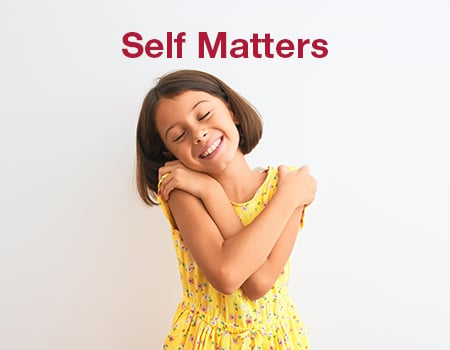Feeling overworked? Unappreciated? As if your dreams seem to drift farther and farther away? Current culture commands the need for more. Bigger. Faster. Newer. More comfortable. Easier. There is nothing inherently wrong with wanting an improved quality of life for yourself and your loved ones.
The problems arise when the vision becomes an obsession that rules your life. So, what can you do? How do you slow your frenetic pace, soothe your jangles nerves, and continue to work toward your goals? Enter gratitude, more than a word interchangeable with appreciation and thankfulness. Gratitude exists both as states of satisfaction and joy and as an ever-present lifelong process of discovery.
While the feeling is spontaneous, you can cultivate a lifestyle of gratitude. “Thank you” are two words that can transform your life and someone else’s whether you are communicating with people or the Divine Presence in your life.
How Gratitude Works
Gratitude is a deep response of satisfaction to good happening in your life. The process of gratitude shows you a full glass under a running faucet of plenty. Feelings of gratitude are deep-seated responses of satisfaction, and everyone has access. The resulting peacefulness builds connections to yourself and to others. You feel more confident as you expand and deepen your awareness of the good in your life even if you touch it only briefly. When you are in a state of contentment, your life and the world look brighter and more hopeful.
What Does Gratitude Do?
Gratitude is a grand multifaceted thing. As an emotion, gratitude helps you feel happier, healthier, and more energized. You experience life in all its colorful richness and fullness as you recognize and acknowledge the beauty and grace in your life. You don’t take the people and your circumstances for granted. A sense of empathy for others and altruism emerges. Feelings of gratitude can be a mood, a warmth that leads to improved relationships, health-conscious behavior, fewer bouts with physical conditions, and improved sleep. Your symptoms of depression and anxiety may improve. Minor annoyances and discomfort become easier to endure by practicing gratefulness over time. Gratitude can help diffuse and deescalate you and others, so you may respond from a place of serenity in tough and volatile situations.
You navigate the ups and downs of life with greater efficiency. Gratitude is also an attitude and a personality trait. Some people seem to live with the world in a constant state of appreciation and joy. These are the people who have the knack of helping you feel comforted when you experience turmoil in your life. They know how to say, “It could have been much worse,” without sounding condescending. A gentleness comes from them.
When Gratitude is Hard
At times gratitude may be hard or even impossible. The practice is not a quick fix, or a cure-all for pain whether emotional or physical. Nor is it an excuse to forgive someone when you are not ready. Be wary of sentences spoken by others or in your mind that begin with a terse, “You ought to be grateful that…” You will not always feel grateful for upheaval in your life. The nugget of gold in a difficult situation may elude you for a very long time. When gratitude is a challenge, your best options are the coping skills and mechanisms you already have in place—journaling, supportive and trusted friends and family members, and prayer and meditation if those practices are useful. Trust your intuition to rest and self-care when necessary.
Gratitude neither cancels out nor overrides authentic feelings of anger, hurt, fear, annoyance, or loneliness. You continue to live your best life through perpetual learning and evolution.
Gratitude expression for what you have while striving for self-development or improved circumstances clears your mind for options. For example, you may say, “I’m grateful to be employed, and I’m looking for a more fulfilling, higher-paying job.”
Getting More Grateful
The best way to benefit from gratitude is by developing and nurturing a lifestyle that helps you see differently. Practicing gratitude is easy and often takes little time to express. “Thank you” takes only an instant. Of course, fervent, focused, and detailed expressions of gratitude are always in order. You can express gratitude in your journal, out loud, silently, by phone, face to face, text, voicemail, email, card, letter, Facebook, Twitter, a videoconferencing platform, or even a sky-writing plane. Expressing gratitude is a joyful outpouring of recognition of the goodness and grace of life. The expression of gratitude is two-way. You receive the joy of the person you are thanking because they in turn appreciate your gesture of compassion.
Here are nine ways to nurture more gratitude into your life:
- Slow down. Take time to notice, savor, and celebrate the beauty and grace in your life and around you. Awe ushers in reverence and reverence leads to gratitude. Enjoy the mundane as well as the profound events and circumstances and conventions of life.
- Carry a small notebook or use a memo app on your phone to capture snippets and nuggets of gratitude throughout your day. Your notes will spark your memory when you sit down to write.
- Create a gratitude journal. You can go back over your entries and see the accumulation of good things in your life. You may be surprised at the sheer volume of good stuff in your days.
- Share your gratitude with those around you, in all your interactions and your relationships. Let your gratitude illuminate the way for others.
- Make a conscious effort to smile and laugh often.
- Practice feeling grateful even when it is not a holiday. Everyday gratitude makes holidays even more precious.
- Remember that bad things that did not happen are good things. Breathe a sigh of relief and gratitude when situations did not turn out as badly as they could have.
- Acknowledge that some circumstances are difficult. Be gentle and nurturing with yourself.
- At bedtime, reflect on your day, and write three things you are thankful for and why (this is important). Then write three things that happened during the day that brought you peace, relief, pleasure, or joy and why. Focused reflection and writing can relax you for restful, refreshing sleep.
Gratitude is a powerful, transformative tool that is always at your disposal and discretion. Your life will be infused with deep satisfaction, joy, and peace. Living in gratitude is wonderful.

Billie Wade, a lifelong journaler, believes people are precious, sacred, resilient, and stronger than they know. She created Journaling to Heal, LLC which helps people discover the power of writing in their process of recovery from emotional stress and trauma. Visit her at www.billiewade.com and find more of her writing on www.dmpcc.org/billie where she writes a monthly newsletter column for Des Moines Pastoral Counseling Center.




Leave Comment